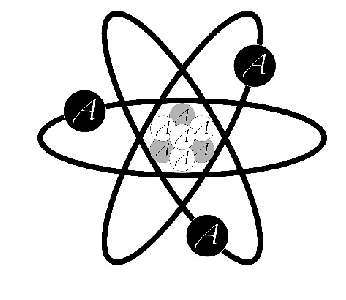What is an atheist? Any simple Internet search will tell you that an atheist is someone who rejects the existence of any godlike deities. However, for many people, especially those not familiar with the concept of atheism, this raises more questions than it answers.
What is an atheist?

What is an atheist? Any simple Internet search will tell you that an atheist is someone who rejects the existence of any godlike deities. However, for many people, especially those not familiar with the concept of atheism, this raises more questions than it answers.
Religion in the United States is very connected to our country’s sense of community, morality and lifestyle. For someone to reject the entire notion of religion may seem quite strange. But in the year 2013, the concept of nonbelief is becoming more widespread. More and more people are renouncing their ties to religion and labeling themselves atheists.
So what does it truly mean to be an atheist?
Atheists, despite surprisingly common misconceptions, are not immoral heathens whose only goal in life is to destroy religion and make everyone unhappy (while this may seem like obvious hyperbole, some people actually think this way). Atheists, humanists, secularists and other types of nonbelievers are just as diverse as their theistic counterparts.
Atheists come in all shapes and sizes. People who call themselves atheists have their own reasons for leaving their religion, their own attitudes toward faith and religion, and their own unique spiritual beliefs, morals and ways of life.
For someone to say that all atheists behave in a certain way is not only false, but proves that person doesn’t understand what atheism is or has never met anyone who considers themselves an atheist. However, even that is no excuse for making generic or untrue statements about a group of people that only continues to grow around the world.
As an atheist, I am continually met with a mixture of criticism and shock when people realize that I do not believe in God. I am bombarded by questions from people who have never met an atheist and who immediately assume atheism is wrong because it does not fit their way of thinking or their ideas regarding religion.
At first, when I was still coming to terms with my own spiritual beliefs, I was really taken aback by these types of reactions. They made me extremely uncomfortable. I wasn’t ready for a complete examination of my way of thinking about religion, and as I began to reel, looking for answers to the questions posed to me, it seemed to only further prove to the person asking them that atheism was a complete hoax.
Atheism is not a hoax; it is a distinctive way of thinking that is gathering momentum around the world. But many young adults struggle with their sense of identity. Not having an answer for every question that is thrown at them about their religion or lack thereof does not make the way they think wrong. You may not convince the person you are talking to of the validity of your beliefs, but is that really important? Is it important to fit a specific mold that society has laid out with prescribed terms?
I realized that I could use this skepticism as a way to continue to evaluate the way that I thought about the world. After several years of considering myself an atheist I am more confident in my own beliefs, but I also recognize the turmoil and uncertainty that people go through as they try to understand something that is strange and new to them.
Atheism, like religion, does not fit one specific mold. And in the increasingly diverse society that we live in, it is nice to be truthful about the things you believe or don’t believe and the way you want to live your life.
The next time someone tells you they are an atheist, instead of automatically assuming you now know more about this person, think about your own personal beliefs. The struggles that you face on a daily basis with your own spirituality and the feelings that you hold about your life choices are the same whether you are religious or not.
Religious faith, or lack of faith, is a unique and personal aspect of every human being. Our spiritual beliefs are complex machines and, in the end, there is no mold that defines any of us.






